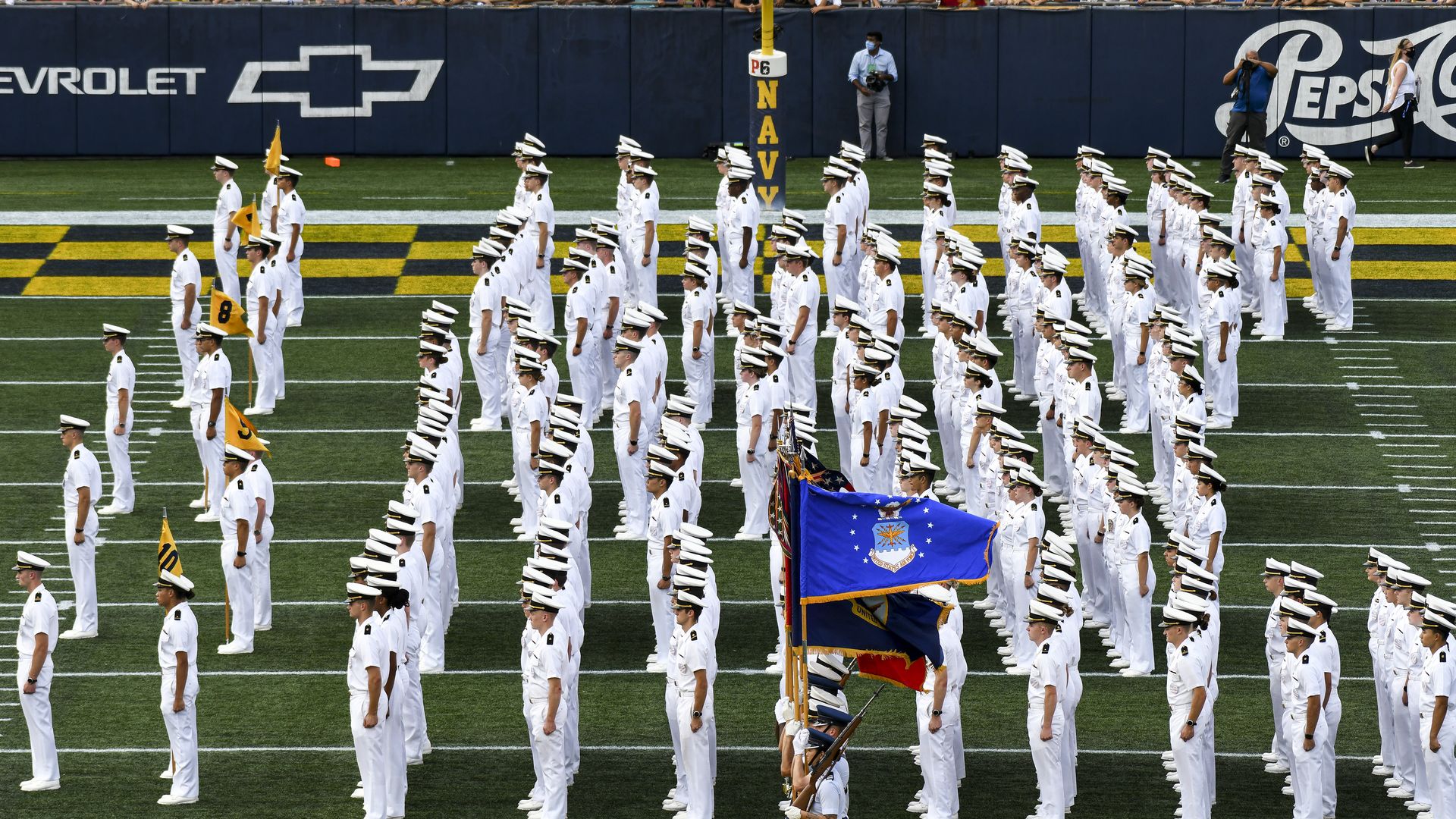Sep 25, 2021 - Politics & Policy
A decade after "don't ask, don't tell," cadets see progress, room for growth
Add Axios as your preferred source to
see more of our stories on Google.

The Navy Color Guard presents the flags as the Corps of the Cadets takes the field prior to the Air Force vs. Navy game on Sept. 11, 2021, at Navy. Photo: Mark Goldman/Icon Sportswire via Getty Images
